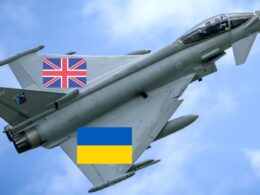As Ukraine’s Western allies work to curb Russia’s oil exports, Moscow is finding ways to bypass these restrictions. Since the start of the invasion, cutting off Russia’s revenue, particularly from oil, has been crucial in weakening the Kremlin’s war chest. Despite some success, much remains to be done.
German Chancellor Olaf Scholz recently announced a push to intensify efforts against Russia’s “shadow fleet”—a fleet of tankers that help Russia dodge sanctions. These tankers operate in legal gray areas, often uninsured, and under flags of convenience, allowing Russia to continue its maritime oil trade despite EU embargoes and sanctions.
Russia exports around 15 million tons of crude oil and 6-7 million tons of oil products monthly, primarily from the Baltic and Black Seas. Estimates suggest Russia has 300 to 500 tankers at its disposal, though not all are active at once. Ukraine’s allies refer to these vessels as “shadow tankers,” as they evade international scrutiny and insurance, raising concerns about potential environmental disasters.
The EU has taken steps to close loopholes, such as banning access to ports for ships involved in Russian oil transport and implementing stricter notification requirements. Despite these measures, Russia continues to find ways to export oil, often through third countries not participating in the sanctions, such as Turkey and China.
Russia also employs deceptive tactics, such as jamming GPS signals to conceal ship movements and underreporting cargo volumes. These methods complicate efforts to enforce the price cap imposed by the EU, G7, and Australia, which is supposed to limit the price of Russian oil to $60 per barrel.
Enforcing these sanctions is challenging, as they require coordination across multiple countries and legal frameworks. While the West has imposed restrictions on specific ships and companies, Russia has continued to expand its fleet, often using complex ownership structures to obscure its activities.
Scholz’s call for a global coalition to tackle Russia’s shadow fleet highlights the ongoing struggle to effectively cut off Russia’s oil revenue. Despite these challenges, experts believe that continued international pressure and tighter enforcement can significantly reduce Russia’s ability to fund its war efforts. The battle against Russia’s shadow fleet is far from over, but the international community remains committed to closing the remaining gaps in sanctions and reducing the Kremlin’s war chest.







